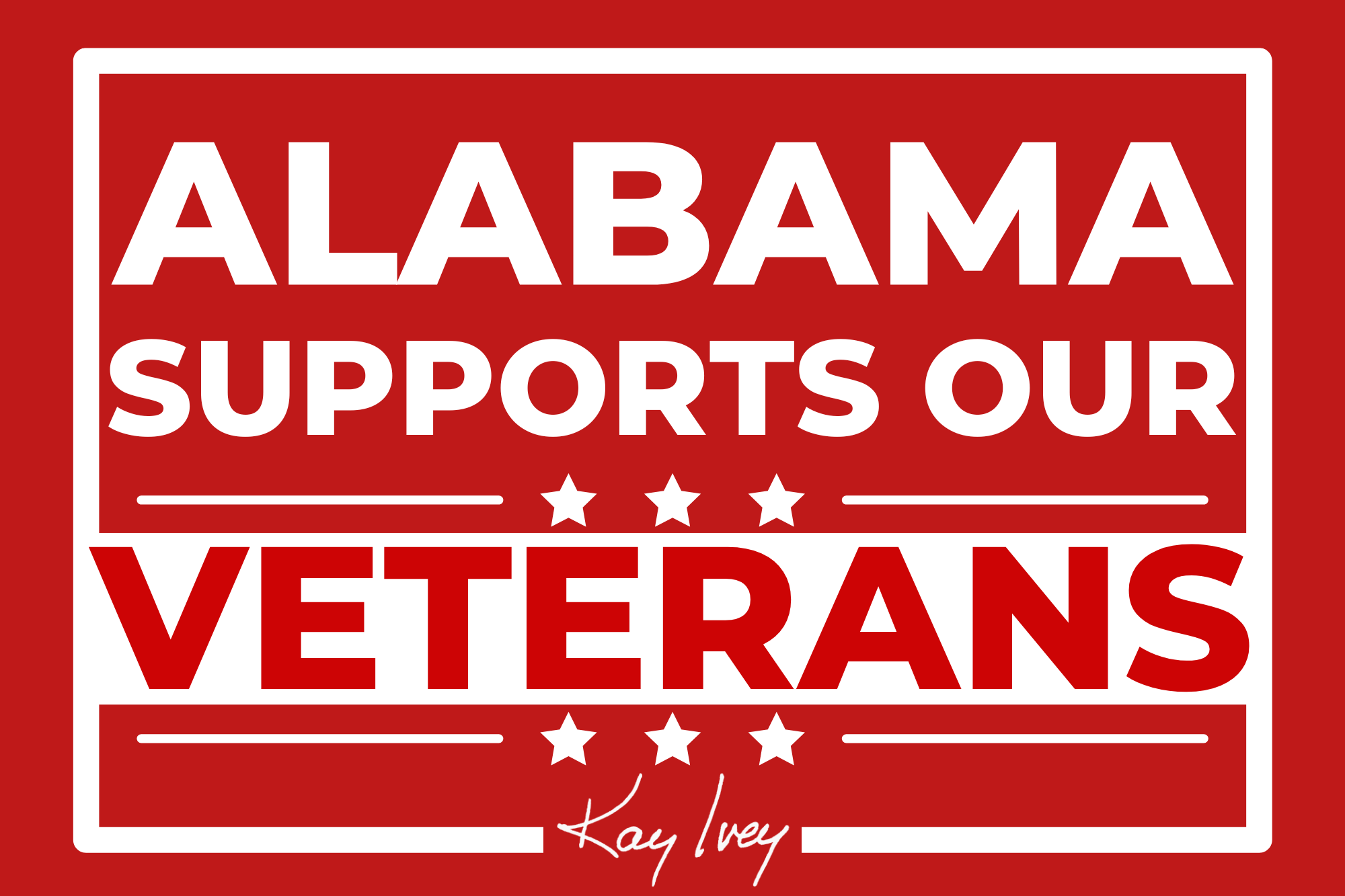
MONTGOMERY, Ala. — A comprehensive resource center for Alabama veterans approved by Gov. Kay Ivey last month with the passage of Senate Bill 70 is already being eyed for expansion under a “hub-and-spoke” model, members of the Veterans Mental Health Steering Committee discussed on Wednesday.
In late February, Ivey signed SB70 into law which established the Alabama Veterans Resource Center, a public corporation that would, in a centralized location, offer comprehensive support services to veterans and their families, including career counseling and job placement, mental health and wellness programs, and assistance with accessing state and federal benefits.
Department of Mental Health Commissioner Kim Boswell, who chairs the Veterans Mental Health Steering Committee, said talks were already well underway among committee members on recommending lawmakers support expanding the resource center under the hub-and-spoke model, where the center would act as a central hub connecting multiple spoke locations across the state.
“It’s a pretty well-researched model that has worked effectively in other arenas like substance use treatment,” Boswell told Alabama Daily News Thursday.
“So the veterans resource center that they’re talking about putting in Montgomery would be the hub, (and) someone in a local community might connect to services there through telehealth. So the spokes become reaching out to other communities, usually more rural communities that don’t have access to all the services that are actually offered in the hub.”
The Veterans Mental Health Steering Committee, established last summer to improve the quality and access of mental and behavioral health care for veterans, had previously asked state lawmakers to consider funding the resource center with a supplemental appropriation of $5 million during a January meeting. Lawmakers are currently drafting state budgets, and are expected to file their budget recommendations as legislation next week.
Sponsored by Sen. Andrew Jones, R-Centre, the enabling bill also established the Alabama Veterans Resource Center Fund in the State Treasury, managed by the Veteran Resource Center’s Board of Directors and designed to financially support the center’s operations. Under the bill, the fund is eligible to receive funds from state appropriations, federal sources, private or public loans, donations, corporate sponsorships and private-public partnerships.
Jeffrey Newton, the Alabama Department of Veterans Affairs’ new commissioner sworn in by Ivey last week, told ADN that establishing a smooth transition from military service to civilian life was the “master key” to addressing veterans’ mental and behavioral health needs, of which there exist significant gaps in, as previously reported by the committee.
The new veterans resource center, Newton said, would play a significant role in improving that transition.
“The Alabama Veterans Resource Center, that is going to be the key to get it right, get this transition correct, and we’re prepared to do that,” Newton told ADN.
“You’ll have a centralized area here in Montgomery, but then the idea is to have stations, regional areas out in the state that they can reach out to, and they will have the resources and the buttons to push to make this happen out in the counties.”
With as many as 400,000 veterans in Alabama, veterans in general are more prone to suicide and drug addiction than non-veterans.
Traumatic brain injuries are also more prevalent among veterans, and have been shown to increase alcohol use disorders, substance use and suicide among veterans by nearly 32%, 100% and 56%, respectively.
The committee also announced the completion of a draft for its comprehensive plan, which included six recommendations: to construct a veterans resource center, to expand traumatic brain injury screening access, to back a voluntary firearm surrender program, to develop a partnership agreement between the ADMH and the ADVA, to organize a veteran mental health summit, and for all of the aforementioned initiatives, to evaluate them going forward using evidence-based practice, an evaluation method using available evidence to inform decision making.
Copies of the plan will be given to members of the House and Senate Veterans and Military Affairs committees next week, with a final draft of the plan required to be submitted to Ivey’s office by June 30.
News That Serves Those Who Served.



